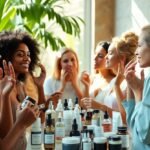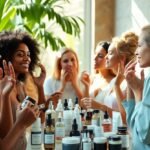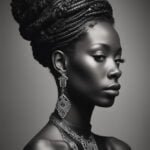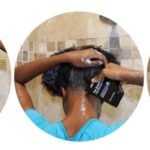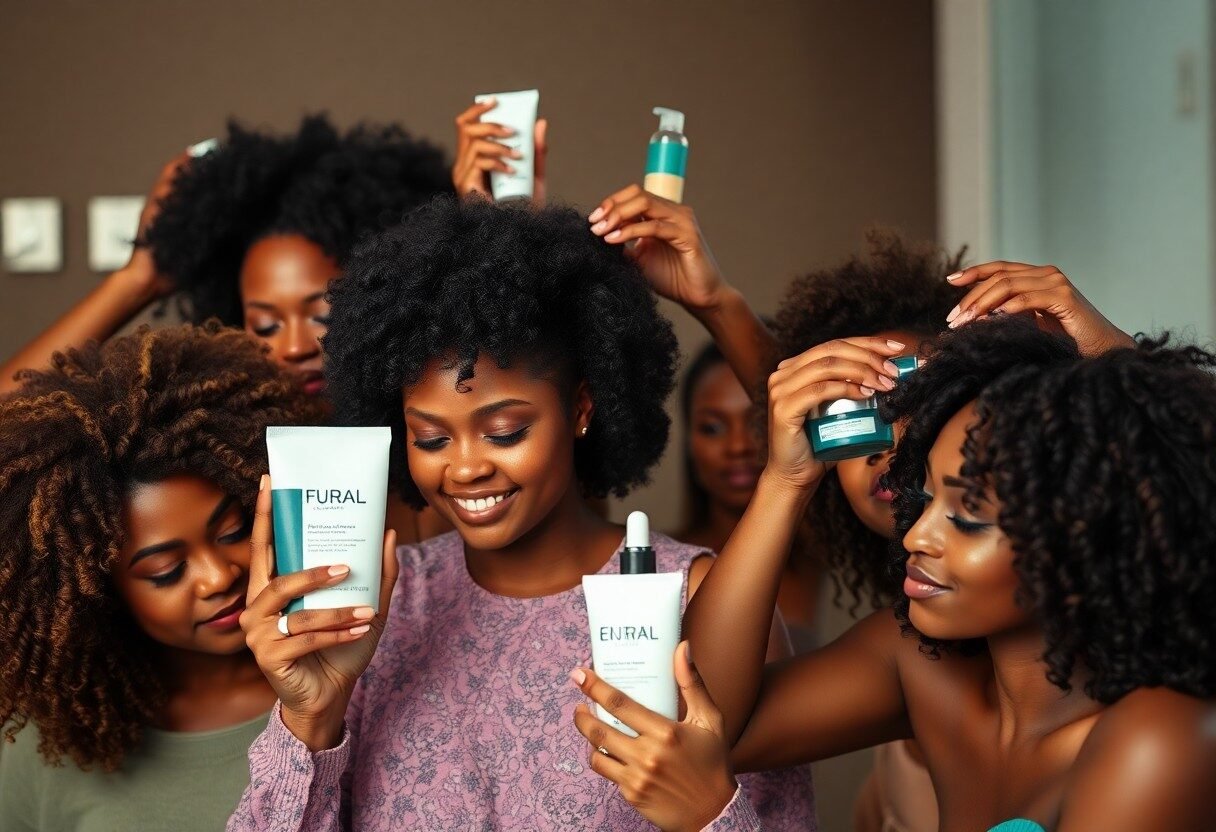
Over the years, I have learned that maintaining a healthy scalp and hairline is particularly important for Black women. With unique challenges such as dryness and sensitivity, it’s vital to choose the right products. In this post, I’ll share my top recommendations for skincare products designed to nourish and protect your scalp, helping you achieve not just beautiful hair, but also an irresistibly vibrant scalp. Let’s explore the best options to ensure your hairline remains strong and thriving.
Key Takeaways:
- Hydration is paramount; incorporating moisturizing scalp oils and leave-in conditioners can help maintain a healthy moisture balance.
- Choose products with natural ingredients such as shea butter, coconut oil, and jojoba oil, which are known to nourish and protect Black hair.
- Regular exfoliation of the scalp can help remove dead skin cells and product buildup, promoting a healthier hair growth environment.
- Look for shampoos and conditioners that are sulfate-free to prevent stripping the hair of its natural oils.
- Incorporating protein treatments can strengthen hair and reduce breakage, especially for women with chemically treated or heat-styled hair.
- Heat protection is imperative when using styling tools; products with thermal protectants can help minimize damage.
- Consulting with a dermatologist or a certified trichologist can provide personalized recommendations based on individual scalp and hair needs.
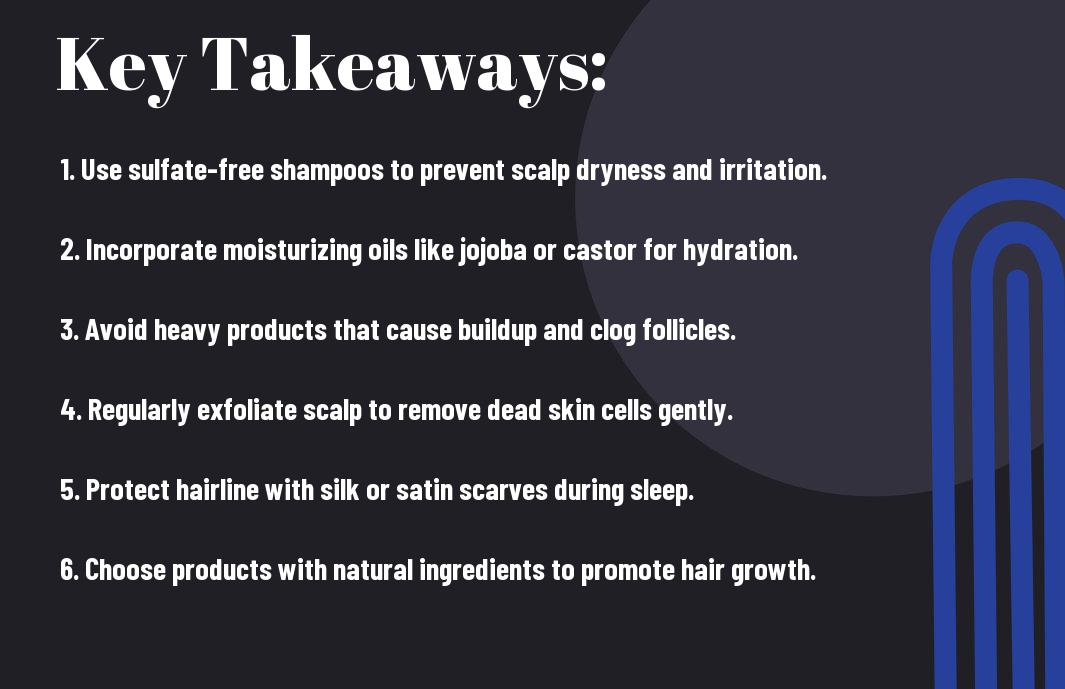
Cultural Significance of Hair Care in the Black Community
Hair care in the Black community transcends mere aesthetics; it symbolizes identity, heritage, and resilience. From intricate braids to vibrant protective styles, your hair serves as a canvas for personal expression and cultural heritage. Many of us recognize that hair is a pivotal aspect of our beauty, often reflecting our history and the social dynamics we navigate. This connection fosters a sense of community, where shared practices and products reinforce our ties to ancestry and cultural narratives.
Historical Context of Black Hair
The history of Black hair is rich and complex, tracing back to African roots where styles represented social status, tribe, and even marital status. During the transatlantic slave trade, European standards forced many to abandon their natural textures, leading to generations of struggle against oppressive beauty norms. The fight for natural hair acceptance has marked significant cultural movements, showcasing resilience and pride in embracing our unique textures. Influential figures, like Angela Davis and the Black Panthers, championed natural hairstyles in the 1960s, making them symbols of activism and pride.
Modern Trends and Practices in Hair Care
Today, the landscape of hair care in the Black community is vibrant and diverse, with a strong emphasis on *natural beauty* and self-acceptance. Innovations in hair products, focusing on natural ingredients, promote healthier scalp and hair care routines. I often see many women opting for *sulfate-free shampoos*, *cold-pressed oils*, and *deep conditioning treatments* that nourish without harsh chemicals. Additionally, the rise of social media platforms has cultivated a supportive community where techniques like *wash-and-go*, *twist-outs*, and protective styling are extensively shared, allowing individuals to explore styles that resonate with their personal identities.
Modern trends also emphasize *holistic approaches*, where nutritional well-being supports hair health. Many are integrating *superfoods* and supplements specific to hair growth, such as biotin and omega-3 fatty acids, into their daily routines. The embrace of hairstyles that celebrate *textures*, including the thriving movement towards *locs* and *afros*, signifies a growing affirmation of Black beauty. Notably, the acceptance of natural hair in professional and public spheres exemplifies a shift towards greater diversity and representation, binding our community tighter in shared experiences and affirmations of our unique beauty.
Essential Ingredients for Scalp Health
To nourish and maintain scalp health, recognizing the ingredients that contribute to its vitality is vital. Certain elements not only provide nourishment but also help address common issues such as dryness, itchiness, and hair loss. Leveraging a blend of natural oils, hydrating agents, and specific moisturizers can create an optimal environment for hair growth and maintenance. Understanding these key ingredients equips you with the knowledge to choose the right products tailored for your unique hair needs.
Natural Oils and Their Benefits
Natural oils are rich in fatty acids and vitamins, providing vital nourishment to both the scalp and hair. Oils such as coconut, jojoba, and castor penetrate deeply to moisturize and protect the scalp while promoting hair growth. For example, castor oil is known for its ability to increase blood circulation, thereby enhancing nutrient delivery to hair follicles, which can lead to thicker and healthier hair.
Hydrating Agents and Moisturizers
Hydrating agents play an integral role in maintaining scalp moisture balance, with ingredients like aloe vera, glycerin, and hyaluronic acid working to attract water and lock in moisture. These ingredients help prevent dryness and irritation, ensuring your scalp remains supple and healthy. Regular use of products containing these agents can significantly improve scalp texture and reduce the risk of dandruff or flakiness.
When choosing moisturizers, look for those specifically formulated with humectants. Humectants like glycerin draw moisture from the air into your scalp and hair, while occlusive agents such as shea butter or lanolin create a barrier to minimize water loss. The ideal combination can effectively hydrate your scalp, vital for maintaining a vibrant and healthy hairline. Ultimately, selecting products that feature these hydrating agents will ensure your scalp remains nourished, enhancing overall hair health and appearance.
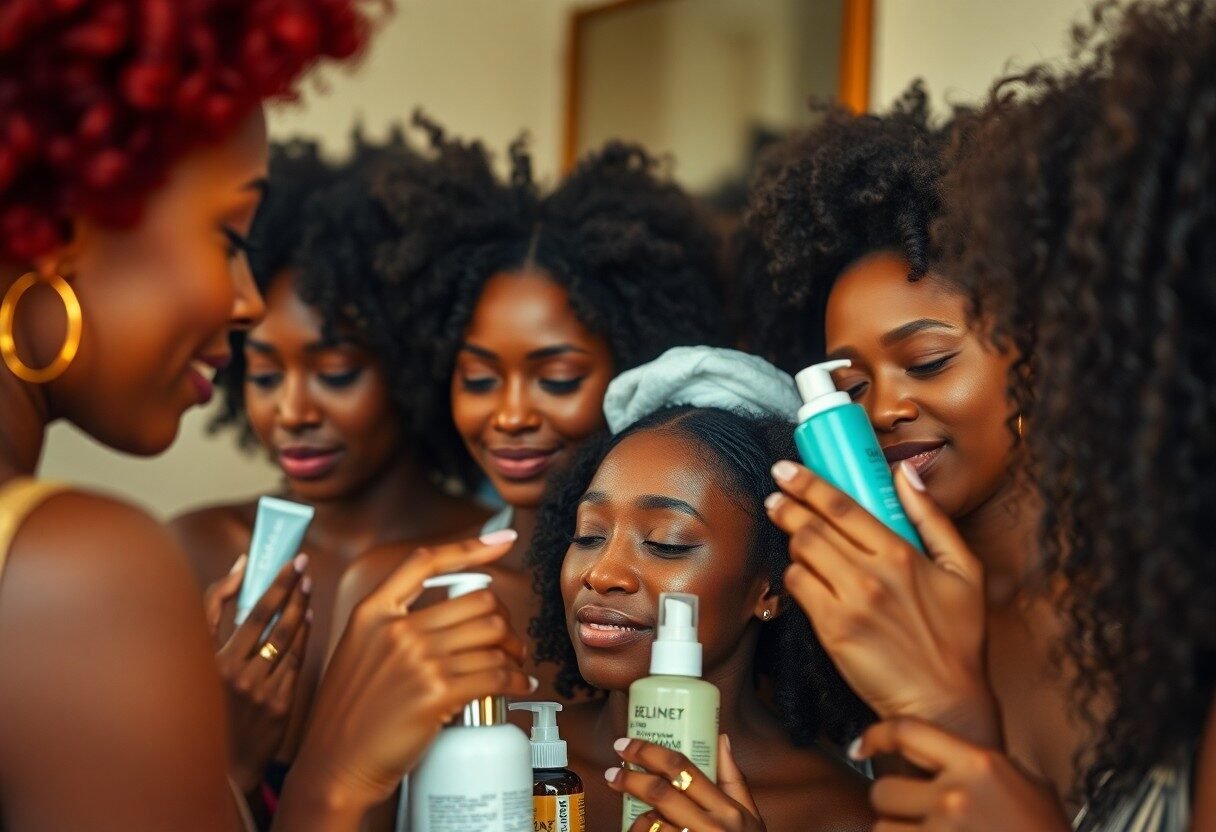
Top Recommended Products for a Healthy Scalp
For promoting a healthy scalp, I advocate for products that nourish and hydrate without causing buildup. Look for formulations that include natural ingredients such as tea tree oil, which has antibacterial properties, and aloe vera to soothe irritation. A gentle exfoliating shampoo can also help in removing dead skin cells, ensuring that your scalp remains clean and vibrant. Products rich in natural botanicals are ideal for maintaining balance and promoting hair growth.
Lightweight Oils and Serums
Hydrating the scalp is easy with lightweight oils and serums designed specifically for your needs. Opt for options like jojoba oil or argan oil, as they absorb quickly without leaving a greasy residue. Apply these oils directly to your scalp to help lock in moisture and prevent dryness, contributing to healthier hair growth.
Deep Conditioning Treatments
To restore and maintain moisture levels, I can’t recommend deep conditioning treatments highly enough. These treatments penetrate the hair shaft, providing intense hydration and nutrients. Incorporating products with shea butter, coconut oil, or honey can work wonders, especially for textured hair. They help to repair damage, reduce breakage, and increase elasticity, which is vital for maintaining a healthy scalp and hairline.
Deep conditioning treatments act as a powerful ally in your hair care routine, especially if utilized once a week. Look for products that contain proteins and important fatty acids as they help rebuild and strengthen damaged hair. For an even more effective regimen, consider applying a shower cap to trap heat while the treatment sits, allowing your hair to absorb all the nourishing ingredients. The result? Softer, more manageable hair, and a revitalized scalp.
Strategies for Maintaining a Strong Hairline
Establishing a solid strategy to maintain your hairline involves a blend of protective measures, lifestyle adjustments, and careful treatment choices. Keeping stress levels low, avoiding tight hairstyles, and being mindful of the products you apply can all foster a healthier environment for your hair. Prevention is typically more effective than trying to remedy hairline issues after they occur. Frequent assessments of your hair and scalp health will also enable quicker response to any changes that may arise.
Protective Styling Techniques
Utilizing protective styles can significantly help in safeguarding your hairline from breakage and stress. Options like braids, twists, and buns reduce manipulation and friction, which are key contributors to hair loss. I recommend using soft hair ties and avoiding styles that tug at your scalp. Additionally, rotating your protective styles every few weeks ensures your hair has a chance to breathe, promoting overall health and resilience.
Nutritional and Lifestyle Factors
Your diet and lifestyle choices play an integral role in maintaining a strong hairline. A balanced intake of nutrients such as biotin, vitamins A, C, and E, as well as omega-3 fatty acids, supports hair strength and promotes growth. Staying hydrated and limiting processed foods can also impact your hair health positively. Engaging in regular physical activity and ensuring ample rest is equally crucial for maintaining a healthy scalp.
- Balanced diet rich in vitamins and nutrients promotes healthy hair.
- Hydration aids in overall scalp health.
- Regular exercise boosts circulation, enhancing hair growth.
- Adequate rest prevents stress-induced hair loss.
- Recognizing the interplay between your lifestyle choices and hair health is vital.
Focusing on what you consume can amplify your efforts in achieving a robust hairline. Foods high in proteins—like legumes, nuts, and lean meats—provide the amino acids that hair requires for strength. Antioxidant-rich fruits and vegetables, such as berries and leafy greens, combat oxidative stress, which can weaken hair follicles. Incorporating whole grains can improve your body’s energy levels, supporting overall hair vitality. Recognizing the impact of these dietary choices helps in fostering a hair-friendly environment.
- Proteins from legumes and nuts aid in building strong hair.
- Antioxidants from fruits combat oxidative stress.
- Whole grains support energy levels and promote vitality.
- Recognizing how nutrition affects your hair can empower your hair care regimen.
Debunking Myths Surrounding Black Hair Care Products
Many misconceptions cloud Black hair care products, often leading to ineffective routines. People often think that certain products are exclusively for specific hair textures, which can limit your options and creativity when it comes to hair care. Moreover, myths about ingredients being harmful or ineffective can steer you away from beneficial formulations designed specifically for Black hair. With a better understanding, you can make informed choices in navigating the landscape of hair products.
Myths vs. Reality: Ingredients and Efficacy
Beliefs that hair products targeting Black hair are inferior reflect a lack of understanding rather than fact. Ingredients like shea butter, coconut oil, and jojoba oil are often seen merely as trendy but actually have scientifically backed benefits for moisture retention and overall scalp health. By diving deeper into the ingredient lists, you’ll find that many hair care products are formulated to withstand the unique challenges faced by Black hair.
The Science Behind Hair Growth
Understanding hair growth involves more than just topical treatments; it requires knowledge of the hair growth cycle. Hair grows in three phases: anagen (growth), catagen (transition), and telogen (resting). While Black hair typically has a slower growth rate, the health of the scalp and the condition of your products can greatly influence this process. The role of nutrition and scalp health cannot be overlooked either as they provide foundational support for hair follicles.
Research highlights that factors like hormonal changes, genetics, and overall health significantly affect how fast your hair grows. For instance, adopting a nutrient-rich diet loaded with vitamins like B7 (biotin), iron, and zinc not only strengthens your hair but also stimulates your scalp’s blood circulation, enhancing the anagen phase. Additionally, staying hydrated impacts the moisture levels of your scalp, further promoting a thriving environment for hair growth. By combining these scientific principles with the right products tailored for Black hair, you can create an effective routine that aligns with natural biological processes.
Final Words
Conclusively, finding the right skincare products for your scalp and hairline is necessary for maintaining healthy hair in Black women. I encourage you to explore different moisturizers, oils, and treatments that cater specifically to your hair type and scalp needs. By prioritizing ingredients that nourish and protect, you can create a resilient hair environment. Your hair routine should focus on hydration, gentle cleansing, and protective styling to enhance your natural beauty. Trust your journey, and experiment until you find what resonates best with your unique hair health.
FAQ
Q: What specific ingredients should I look for in skincare products for a healthy scalp and hairline?
A: When deciding on skincare products for a healthy scalp and hairline, look for ingredients like tea tree oil, which has antibacterial properties, shea butter for moisture, and aloe vera for soothing inflammation. Additionally, oils like jojoba and argan are excellent for hydration and can help promote hair growth.
Q: How often should I use scalp treatments to maintain a healthy scalp?
A: The frequency of using scalp treatments can vary based on individual needs, but generally, applying scalp treatments once a week is a good starting point. If you experience dryness or irritation, you might consider increasing the frequency. Pay attention to your scalp’s reaction and adjust as needed.
Q: Are there any specific hairline care tips for Black women?
A: Yes, it is important to be gentle with your hairline. Avoid tight hairstyles and use silk or satin pillowcases to reduce friction. Incorporating regular scalp massages can also stimulate blood circulation and promote growth. Additionally, consider using protective hairstyles and minimizing the use of heat.
Q: Can scalp exfoliation benefit hair health?
A: Absolutely! Scalp exfoliation can help remove dead skin cells and product buildup, which can lead to a healthier environment for hair to grow. Look for gentle scalp exfoliators that are specifically designed to be used on the scalp, and aim to exfoliate every two to four weeks.
Q: What role does diet play in maintaining scalp and hairline health for Black women?
A: Diet plays a significant role in maintaining scalp and hairline health. Incorporating vitamins and minerals such as vitamins A, C, D, E, and biotin can help support hair growth. Consuming foods rich in omega-3 fatty acids, antioxidants, and proteins can also contribute to overall hair health.
Q: How can I identify if my scalp issues are related to product buildup or an underlying condition?
A: Product buildup often manifests as itchiness, flakiness, or a greasy feeling on the scalp. If these symptoms persist despite proper cleansing and exfoliating, or if you notice significant hair loss or irritation, it might be time to consult with a dermatologist or trichologist to rule out underlying issues like psoriasis or dermatitis.
Q: Should I choose natural or synthetic products for my scalp and hairline care?
A: Both natural and synthetic products can be effective, but it often depends on individual preferences and needs. Natural products may contain fewer harsh chemicals, which can be gentler for sensitive skin. However, some synthetic ingredients may deliver faster results. It’s advisable to check labels, consider your scalp’s needs, and choose products that work best for you.

